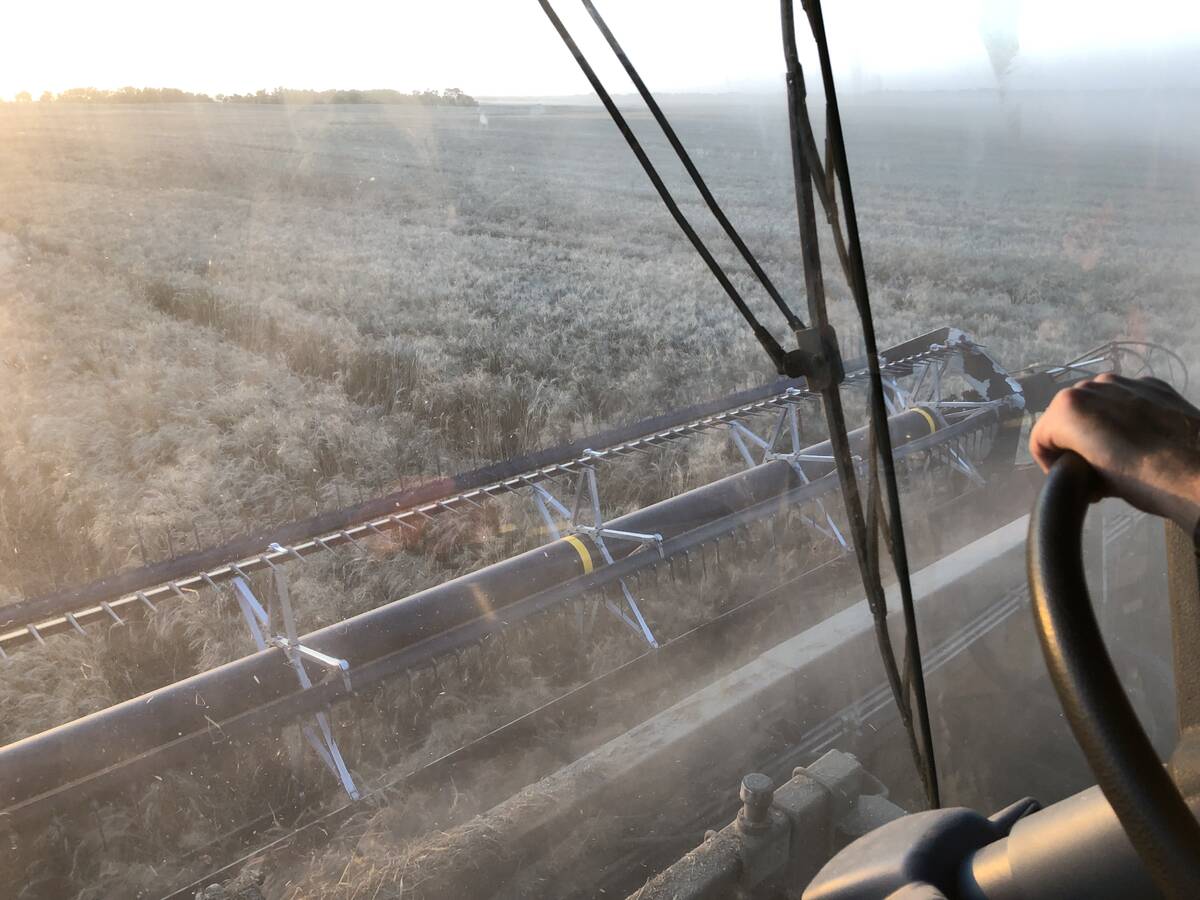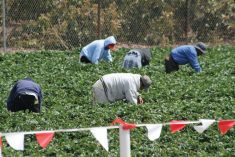Glacier FarmMedia — Government, industry and educational institutes must act now to address the labour challenges confronting the emerging plant-based protein industry in Saskatchewan and Manitoba, according to a new report.
“The danger here might be that the sector might not live up to its potential,” said Nicholas Renzetti, research associate with Smart Property Institute, the group that wrote the report in partnership with the Future Skills Centre.
And that potential is enormous. Protein Industries Canada believes the plant-based protein sector could be contributing $25 billion annually to Canada’s gross domestic product by 2035.
Read Also

Mail strike disrupts grain sample delivery
The Canadian Grain Commission has asked farmers to consider delivering harvest samples directly to CGC offices, services centres or approved drop offs as Canada Post strike delays mail.
“Manitoba alone wants to grow its protein sector by attracting $1.5 billion in investment and creating 1,550 jobs by 2025,” stated the report.
Major investments have already been made in the two prairie provinces.
Roquette opened the world’s largest pea processing plant in Portage la Prairie, Man., in 2021.
Cargill and Viterra have announced plans to build canola crushing facilities in Regina that will be operational by 2024.
Federated Co-operatives Ltd. and AGT Food and Ingredients are building a $2 billion canola crushing and biodiesel plant in the same city that will be completed by 2027.
Burcon NutraScience Corporation’s pilot protein ingredient plant in Winnipeg received funding in 2023.
But a survey of companies working in that space revealed that there are some significant hurdles to overcome for those plants to be successful.
“People are concerned that the persistent labour challenges might lead to a situation where the sector continues along but doesn’t expand to its full potential,” said Renzetti.
The case of Merit Functional Foods offers a cautionary tale along those lines, according to the report.
There were “sky-high expectations” when the company opened its 94,000 sq. foot processing plant in Winnipeg in 2021.
Two years later the firm declared bankruptcy despite receiving $116.5 million in federal and provincial funding.
“The company’s lack of success was attributed to factors ranging from the high costs of inputs to labour shortages to delays in new product development,” stated the report.
A survey by the Canadian Federation for Independent Businesses found that 63 percent of agri-food companies could not hire all the staff they needed.
“There is a lack of visibility and perceived attractiveness for food and beverage manufacturing careers,” stated the report.
Renzetti said that is odd given that it is the largest manufacturing sector in the country measured by employment and the second largest measured by sales.
It doesn’t help that wages paid in the food manufacturing sector are typically much lower than in competing sectors such as potash mining and oil and gas extraction.
Average pay in the food manufacturing sector was $21.20 per hour in 2020 compared to an average manufacturing wage of $30.36 per hour.
Another hurdle is that many food production facilities are in rural areas, which means there is a smaller talent pool to draw on and it is harder to convince newcomers to Canada to settle in those areas.
“We do think these are solvable challenges,” said Renzetti.
The first step is to create increased awareness of food manufacturing jobs starting at the educational institutes.
People training in information technology, engineering and data analysis might not be aware of these jobs.
One idea is to work with institutes to create job internships or to get them teaching specific technical skills unique to food manufacturing jobs.
Food manufacturers need to make better use of existing immigration programs, such as the Provincial Nominee Program, which he called a “standout” program.
The industry should also lobby hard to get plant-based protein manufacturing on the list of eligible industries for the federal Agri-Food Pilot program.
There needs to be better co-ordination and sharing of labour market data between provinces and with the federal government.
And there should be a wholistic approach to job creation that places an emphasis on quality-of-life aspects, such as providing adequate transportation, housing and child-care facilities to accompany the new job.
—Sean Pratt writes for the Western Producer from Saskatchewan.

















